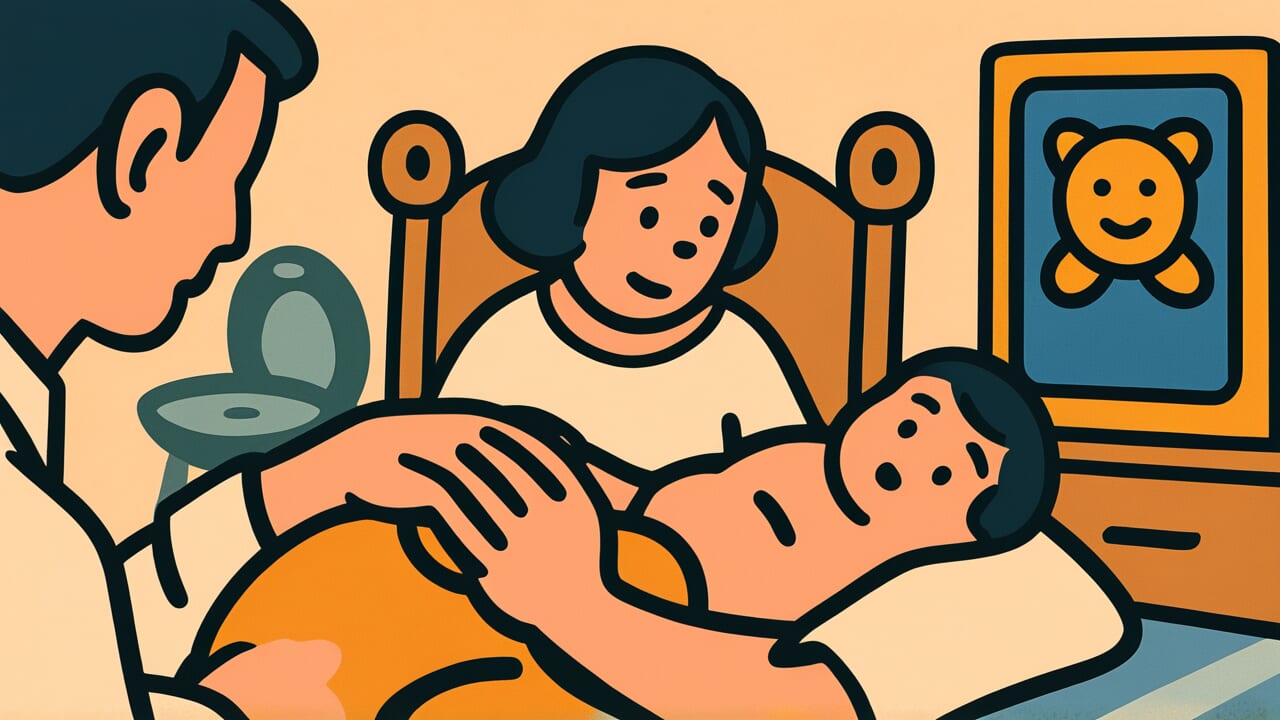How to Read “Not deterred by a difficult birth”
Nanzan iro ni korizu
Meaning of “Not deterred by a difficult birth”
“Not deterred by a difficult birth” describes how people forget painful experiences and repeat the same mistakes.
The proverb comes from the observation that women who suffer through difficult childbirth eventually forget the pain and pursue romance again.
This pattern reveals a fundamental human trait: we don’t learn from our mistakes as well as we think we do.
People use this proverb when someone repeats a mistake they should have learned from.
For example, someone who lost money gambling but tries again. Or someone who got hurt in a relationship but falls for the same type of person.
In modern times, we use it to describe how human desires and emotions overpower reason and learning ability.
The proverb carries a critical tone, but also understanding. It acknowledges that this weakness is part of being human.
Origin and Etymology
No clear historical record explains when this proverb first appeared. However, we can learn much from examining the words themselves.
“Nanzan” literally means difficult birth. “Iro” has long been used in Japanese to refer to romantic and sexual love.
You can see this in expressions like “iro-goto” (love affairs) and “iro-koi” (romance). The word “iro” was a polite way to talk about intimate relationships.
This proverb emerged from a time when childbirth was truly life-threatening. Before modern medicine, giving birth was extremely dangerous for mothers.
A difficult birth could easily kill both mother and child. The pain and suffering were beyond what most people today can imagine.
Yet despite this terrible experience, women would eventually fall in love again. They would become pregnant and give birth once more.
Our ancestors observed this pattern with clear eyes and a touch of humor. They saw it as a window into human nature itself.
The proverb uses women’s childbirth experience as a specific example. But it really describes something universal about all humans.
We forget painful experiences and repeat the same mistakes. This proverb captures that truth perfectly.
Usage Examples
- He fell for the same scam again – truly not deterred by a difficult birth
- I keep failing at diets and then binge eating, a perfect example of not deterred by a difficult birth
Universal Wisdom
“Not deterred by a difficult birth” captures a fundamental contradiction in human nature.
We have reason and the ability to learn from experience. So why do we keep making the same mistakes?
The answer is simple: humans are not purely logical beings. We are driven by desires and emotions that often overpower our reason.
Even the life-threatening pain of difficult childbirth fades with time. Eventually, instinctive urges rise up again.
This is both a human weakness and a sign of our life force. It shows our resilience and determination.
If humans were perfectly rational and learned completely from every failure, we might not have thrived as a species.
Not fearing failure, forgetting pain, and trying again – this “undeterred” quality may be what pushed humanity forward.
Our ancestors didn’t condemn this contradictory nature. Instead, they accepted it with humor and understanding.
No one is perfect. Everyone repeats similar mistakes. This imperfection is what makes us human.
When we recognize this truth, we can be more tolerant of ourselves and others.
This proverb contains deep understanding of humanity and a warm, compassionate perspective.
When AI Hears This
The human brain has clear priorities in how it learns from danger.
For example, if you vomit once after eating a poisonous mushroom, you’ll avoid that taste and smell for life.
This is called the Garcia effect. Rat experiments show that connecting a specific taste with nausea just once makes them never touch that taste again.
Through evolution, avoiding poison became critical for survival. So the brain prioritizes this learning and burns it into memory permanently.
But childbirth pain works differently. Medically, labor contractions rank among the highest levels of pain humans can experience.
Pain signals reaching the brain during childbirth are several times stronger than those from broken bones.
Normally, the brain should learn intensely to “never experience this again.” Yet many women have second, third, and fourth children.
Here we see evolution’s clever design. Oxytocin, released in large amounts right after birth, has two effects.
It fades the memory of pain while strengthening attachment to the baby. The brain is intentionally overwriting the pain memory.
Individual survival instinct takes lower priority than species survival instinct in evolutionary terms.
That’s why the human brain remembers poisonous mushrooms forever but forgets childbirth pain.
It’s not that we fail to learn. A system actively prevents us from learning. This is evolution’s design at work.
Lessons for Today
This proverb teaches us to accept human imperfection. This lesson matters deeply in our modern lives.
We all have experiences of being “undeterred” in small and large ways.
We stay up late even though we know it harms our health. We impulse-buy when we have no money.
We get emotional even when we know it will hurt us. We might blame ourselves and feel depressed about these failures.
But this proverb reminds us: this has been human nature for thousands of years. No one can perfectly control themselves.
The key is not to blame yourself too harshly for repeating mistakes.
At the same time, don’t use “that’s just how humans are” as an excuse to learn nothing.
Acknowledge your weaknesses, then work to improve little by little. When you fail, stand up again.
Repeating this process is what human growth really looks like.
When you see others repeating the same mistakes, remember this tolerance too.
Everyone walks through life “not deterred by a difficult birth.” We’re all in this together.



Comments